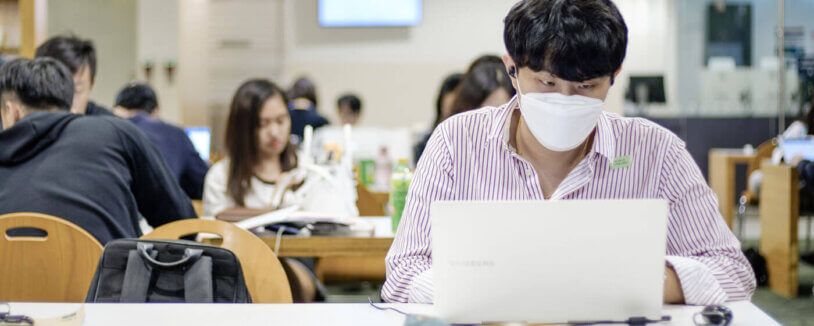Whether you are an entrepreneur with dozens of employees, a sole trader or a so-called pendler who commutes to a neighbouring country for work, below you will find the basic parameters of the upcoming state support, which should soon financially support your business and enable you to survive this unexpected and very challenging period.
Support for entrepreneurs with employees
The government has prepared two “ANTIVIRUS” programmes under which it intends to provide support to entrepreneurs with employees. These programmes differ in the circumstances in which they can be accessed and the level of benefit provided.
Programme A
This programme covers quarantine orders to employees and the inability to assign work to employees due to emergency government crisis measures
There are therefore two parts to this programme. First, it applies to all employers whose employees have to quarantine themselves because of suspected or confirmed COVID-19 disease, but it also applies to cases where employees cannot go to work at all and the employer cannot even order them to work because it is one of the areas in which the provision of services or sale of goods has been restricted by government order (so typically certain restaurants or shops).
The following applies to employers whose employees must quarantine due to suspected or suspected COVID-19 disease. If an employee is quarantined, the situation is treated under the Labor Code as an impediment to work on the part of the employee. In such a case, the employee is entitled to be compensated for his/her wages, at the rate of 60% of average earnings.
However, Programme A also applies to employers who have had to close their operations as a result of a government resolution. Typically, this will include restaurants and other hospitality establishments, hairdressers, various shops, etc. For these cases then the following will apply. From the employee’s perspective, it is important that the inability to attend work will be treated as a hindrance on the part of the employer. The employee will therefore be entitled to wage compensation of up to 100% of average earnings.
Programme B
Programme B covers several different situations: firstly, the impossibility of assigning work to employees due to quarantine orders or childcare for a significant proportion of employees, longer also the reduction in sales of the employer’s output and finally the lack of inputs necessary for the employer’s activities.
This scheme is applicable to employers with a significant proportion of employees (in particular 30%) under quarantine or caring for a child. In this case, employees should be entitled to 100% of their average earnings.
However, under this scheme, currently, if an employee has started to care for a family member (referred to hereafter as “CFC”), receives this benefit from the state, and the employer then closes the workplace, only those employees who are not currently on CFC are entitled to 100% of their salary.
In addition, this program applies to cases of reduced demand for the employer’s services, products, and other items. This applies in particular to employers who, as a result of quarantine measures, lose the ability to supply goods to their customers, both in the Czech Republic and abroad. Their employees should be entitled to a wage replacement of 60%.
Programme B also covers situations of employers who lose inputs used to produce their products or services as a result of quarantine measures or production disruptions at a supplier (including foreign suppliers). Employees should be entitled to a wage replacement of 80%.
George, a programmer who earns CZK 36,144 per month, is unable to be allocated work by his employer because of the employer’s “reduction in production” (i.e. he is placed in Scheme B where he is entitled to 100% of his wages). The employer will pay his wage replacement + deductions and claim 60% from the state. thecalculation of the amount of support will then be as follows: 36,144 (wages) x 1.34 (contributions) and x 0.6 (contribution from the state) = 29,059, and he will receive 29,000 CZK (the ceiling) from the state.
Conditions for receiving the allowance
These two schemes have been ‘running’ since 1 April, with applications for the allowance open from Monday 6 April. The benefit period is currently set at 12 March 2020 to the end of May 2020; however, it is possible that the Government’s support scheme will be extended.
In addition, only employees who were still in the employer’s employment at the time the employer submitted a benefit statement can be eligible for the allowance. Similarly, employees must be validly enrolled in sickness and pension schemes (i.e. these schemes will include foreign employees if the previous condition applies). In addition, the employer must have actually provided the employees with wage compensation and paid all mandatory contributions to the state. Employment agencies can also make use of this assistance, but the employees’ employment relationship with them must be established before 12 March, which is the start of the aid period. The support system and the application process are always handled by the local branch of the Labour Office.
Unfortunately, some employees are not ‘covered’ by these schemes. These include employees who have been dismissed by their employer on the date of submission of the statement of accounts, or those who have been on notice at that moment (with two exceptions, namely dismissal for persistent minor breaches of legal obligations and dismissal for gross misconduct), but also employees on FTEs and FTEs, and employees for whom the employer has already received other benefits from the Labour Office or whose wage replacement is already covered by other public funds. The employer itself must not be in insolvency proceedings or liquidation and will not be able to use the support if it has been fined for illegal employment in the 3 years preceding the date of application. The employer should also not be in debt to public budgets at the time of the grant; however, this condition is likely to be relaxed.
However, in return for granting the aid, the employer must guarantee that the determination of the correct obstacle to work, and therefore the correct inclusion in the scheme and the determination of the amount of aid, is correct and that the rules of the Labour Code will be respected. All this is monitored by the State Labour Inspection Office. Failure to comply with the conditions and rules may result in an obligation to repay the aid, a complaint to the Tax Office and, in extreme cases, criminal sanctions.
Employers are reminded that they can still apply the so-called partial unemployment scheme to their employees in cases where the virus restricts their activities and limits their sales or the demand for their goods or services. However, they must first reach an agreement with the trade union if it is active in their organisation. It can then reduce the employees’ income to 60 per cent of average earnings.
Are you solving a similar problem?
Solutions Tailored for You
Our team of experienced attorneys will help you solve any legal issue. Within 24 hours we’ll evaluate your situation and suggest a step-by-step solution, including all costs. The price for this proposal is only CZK 690, and this is refunded to you when you order service from us.
I Need help
- When you order, you know what you will get and how much it will cost.
- We handle everything online or in person at one of our 6 offices.
- We handle 8 out of 10 requests within 2 working days.
- We have specialists for every field of law.
What is the amount of the contribution?
The contribution from a specific plan is always paid as compensation for the statutory wage replacement paid by the employer to specific employees, including the contributions made by the employer on behalf of itself and the employee from the employee’s assessment base.
The rate of support per employee is based on the current average wage (i.e. CZK 36,144) including deductions (i.e. CZK 48,400) and amounts to:
- in scheme A: 80 % of the eligible expenditure, up to a maximum of CZK 39 000 per employee; and
- in scheme B: 60 % of the eligible expenditure, up to a maximum of CZK 29 000 per employee.
Tradesmen
Remission of minimum advances
The state will forgive for 6 months (i.e. between March and August 2020) the part of the social insurance in the amount of the minimum advances. The way it will work is that:
- Self-employed persons who pay minimum advances will have their mandatory pension insurance payments forgiven in full.
- Self-employed workers with more than the minimum advance will not have to pay the full advance. They will then pay back the difference between the minimum advance and what they should have actually paid next year. If they choose to continue to pay the advance regularly, they can pay the monthly advance less the minimum advance.
Example: Mrs Milena pays the minimum advance so she will not have to pay it until the end of August, leaving money in her pocket. Mrs Jiřina pays monthly advances that are CZK 3,000 higher than the minimum advance, so next year she will pay 6 x CZK 3,000 and the minimum advance will stay in her pocket.
One-off support of CZK 25,000,-
The self-employed will also benefit from a one-off support of CZK 25,000 for the same period as the ANTIVIRUS programmes described above, i.e. from 12 March to 30 April 2020.
However, the condition for obtaining this allowance is that the person concerned is self-employed under the law governing pension insurance. In addition, the activity that the self-employed person cannot carry out is the main activity; it can also be a secondary activity if the self-employed person does not simultaneously carry out any other employment. The self-employed worker must also have been active on 12 March, i.e., not have had an interrupted business (except for seasonal workers). The self-employed person must provide an affidavit of all these facts and also declare that he or she was unable to carry on the activity, in whole or in part, beyond the usual level of activity due to a coronavirus-related health hazard or government emergency measures.
The application for the allowance must be submitted to the tax office where the self-employed person files his or her income tax return: ideally electronically, but possibly also in paper form. It will be possible to apply from the date the law comes into force, which must be approved by Parliament – this should be no later than 15 April. The application must be submitted by 30 June 2020 at the latest, otherwise the entitlement to support will expire. The law being prepared by the government and MPs is intended to guarantee that the bonus will not be applied to any arrears with the tax authorities and that it will not be subject to execution and enforcement. Importantly, however, in the month in which the compensation bonus is paid, no entitlement to unemployment benefit can be granted.
If the self-employed person does not meet the conditions for the full allowance, she will be granted CZK 500 for each day that the conditions for the bonus are met. If the person does not meet the condition for some time (e.g. has not been self-employed for the whole time), the bonus will be reduced accordingly.





